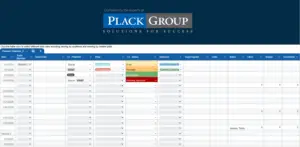Buying a home is a major event. Here are some tips to prepare for what may be one of the most important purchases you’ll ever make.
1. Use a mortgage calculator to determine your monthly payments. Calculate the additional money you’ll spend on real estate taxes and other costs. Monthly homeowners fees, upkeep, and private mortgage insurance can add up quickly. Make sure that you calculate the additional costs not only of your actual mortgage payment, but also of the additional expenses of owning a house. Generally, you should spend a maximum of 28% of your gross income on housing expenses. Also, keep in mind that you’ll need to make a down payment and will have to pay closing costs.
2. Have your real estate agent help you become pre-qualified by a lender. Remember, this is for planning purposes only–this preliminary limit isn’t a lender commitment. It is not pre-approval. However, it is helpful to know an estimate of the amount you can borrow when planning.
3. Set a price range. Although you will want to stick to the budget when actually purchasing a house, it is advisable to look at homes with a purchase price that is slightly over budget; you may often be able to negotiate the price down. If you’re well-informed, you are likely to be able to negotiate a better price. In addition, people are often more willing to compromise on costs of repairs and improvements.
4. Research homes in the area. You can compare different-sized homes by calculating the price per square foot.
5. Make a down payment. Put down as much up front as you can. A larger down payment (at least 20%) usually means that lender won’t require you to pay for private mortgage insurance. Obviously, a large down payment puts you closer to paying off your mortgage.
Bonus Tip: Make sure to keep your HUD-1, as we will need it when preparing your taxes.



